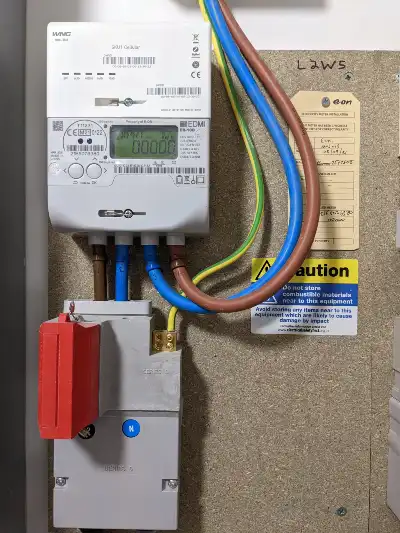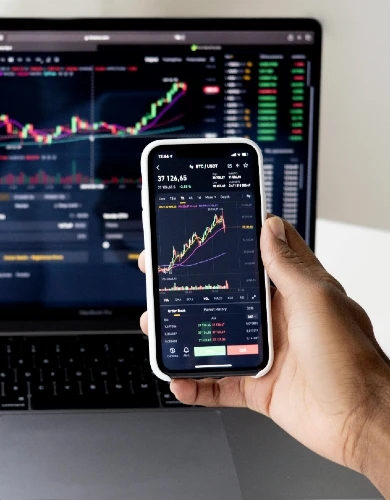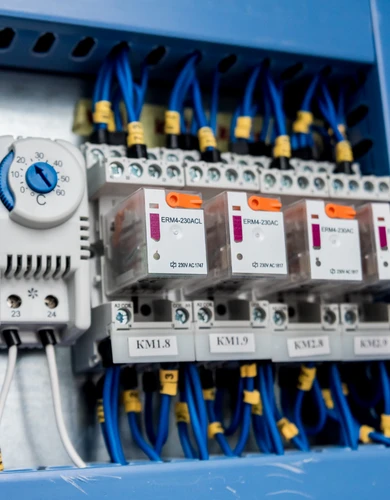Smart meters for business
Smart meters are the foundation of a flexible energy grid, enabling a future in which Britain doesn’t rely on fossil fuels but is entirely powered by wind, solar, and nuclear power.
The UK government is driving the energy industry towards a universal network of smart energy meters for homes and businesses by the end of 2025.
This article focuses on the smart business energy meter rollout for small British businesses. We cover:
- What are business energy smart meters?
- The benefits of smart meters
- Types of smart meters for business
- How to request a smart meter for your business
What are business energy smart meters?
Smart business energy meters are digital energy meters that transmit real-time electricity and gas consumption data to suppliers and business energy monitors.
As of September 2024, there were 1.2 million smart meters in British commercial properties representing 52% of all business energy meters, according to the latest government statistics.
Smart business energy meters are being rolled out to small businesses that still have older meters that don’t communicate meter readings automatically, but it is possible to request one earlier.
The benefits of smart meters for businesses
In this section, we’ll explain how smart meters reduce the administrative burden associated with meter readings and provide more options to save on business electricity rates.
Automatic meter readings
Smart meters automatically communicate meter readings to your electricity and gas supplier using mobile and radio communication. This saves you the hassle of locating your meters and manually submitting meter readings.
💡From 2027, all smart meters will start transmitting meter readings every half an hour. Find out more in our guide to the Market-wide Half-Hourly Settlement for businesses.
Avoid estimated bills
Business energy tariffs are charged based on the kWh of electricity or gas your business consumes. With automatic meter readings, your suppliers can monitor your energy use and accurately calculate your business electricity bills and commercial gas bills.
Smart electricity tariffs
Upgrading to a smart meter gives your business access to a broader range of electricity tariff options. Suppliers like Octopus Business Energy are offering smart multi-rate business energy tariffs that allow businesses to benefit from cheaper off-peak electricity.
Smart meters can measure import and export readings separately, allowing the use of a Smart Export Guarantee tariff.
💡Find a better smart energy tariff today using our business electricity comparison service.
Demand flexibility incentives
Electricity grid operators in the UK, including the National Grid, are beginning to offer demand-side incentives for businesses to adjust their business energy consumption to help balance supply and demand on the grid.
The demand flexibility service is the first example of this, paying businesses to reduce electricity consumption when UK wind farms are not generating sufficient electricity.
Types of smart meters for business
Here are the types of smart meters used to measure the supply of electricity and gas to commercial properties in Britain:
Types of smart business electricity meters
- Half-hourly meters – Smart meters that transmit meter readings every half hour, used by businesses with high electricity consumption.
- SMETS2 electricity meter – The formal name for the smart business electricity meters discussed in this article.
Types of smart business gas meters
- Advanced meters – An older generation of smart meters used by businesses with high gas consumption.
- SMETS2 gas meter – The formal name for the smart business gas meters discussed in this article.
What does a smart meter look like?
Smart meters resemble traditional business electricity meters and business gas meters.
They are typically a box with a digital display that measures electricity or gas consumption.
Here’s an example of a smart business electricity meter:

The easiest way to check if your meter is smart and sending automatic meter readings is to use the Smart Meter Checker on the Citizens Advice website.
How to request a smart meter for your business
As part of the smart meter rollout, suppliers are working through their customers geographically to arrange installations.
However, you can typically request a free early smart meter installation from your supplier.
In this section, we explain the eligibility criteria, the installation process, and how to request a smart meter for your business.
Smart meter eligibility for businesses
The smart meter rollout applies to small business energy users. The criteria for smart business electricity and gas meters are below.
Smart business electricity meters:
The smart meter rollout for non-domestic business electricity connections applies to any property that doesn’t already have a half-hourly meter. Specifically, these are MPANs starting with 03 or 04:
- 03: Electricity supplied to non-electricity intensive commercial properties.
- 04: Non-electricity intensive commercial properties with a dual or multi-rate meter installed.
💡 Other non-domestic MPANs that start with 05-08 or 00 are large business electricity users that already have half-hourly meters that send automatic meter readings.
Smart business gas meter:
The smart gas meter rollout applies to commercial properties that use less than 293,000 kWh of gas each year.
Commercial properties that consume more gas than this likely already have an advanced business gas meter that communicates automatically with business gas suppliers.
Smart business energy meter installation process
A typical smart meter installation takes around two hours and can briefly disrupt your gas or electricity supply.
For more information about the process, visit our guides to:
Request a smart business energy meter
The process for requesting a smart business energy meter depends on how you arranged your current business energy contract:
- Using a broker: If you used a business energy broker to arrange your current tariff, contact your broker and let them handle the smart meter request on your behalf.
- Direct to a supplier: Use Energy GB’s Smart Meter Request search to find the correct form on your supplier’s website.
Data privacy and your smart business energy meter
Smart business energy meters automatically record and transmit energy consumption data, raising some legitimate data privacy concerns.
These concerns have been addressed through the design and implementation of smart meters:
- Data Encryption: Smart meter data is transmitted using an encrypted wireless connection to prevent third-party access to your data.
- Data Sharing: Your business energy supplier cannot share your business energy consumption data without your consent.
- Network Operators: The electricity distribution network operators receive only anonymised data to help them manage demand on the grid.
Switching business energy suppliers with a smart meter
Switching business energy suppliers with a smart meter is exactly the same as with older meter types. Learn more about the process in our guide to switching business energy suppliers.
An older generation of smart meters, known as SMETS1, was not compatible with all suppliers, meaning they stopped providing automatic meter readings when you changed business energy supplier.
Fortunately, nearly all SMETS1 meters have been upgraded to the modern SMETS2 smart meter design, which is compatible with all commercial electricity and business gas suppliers.

